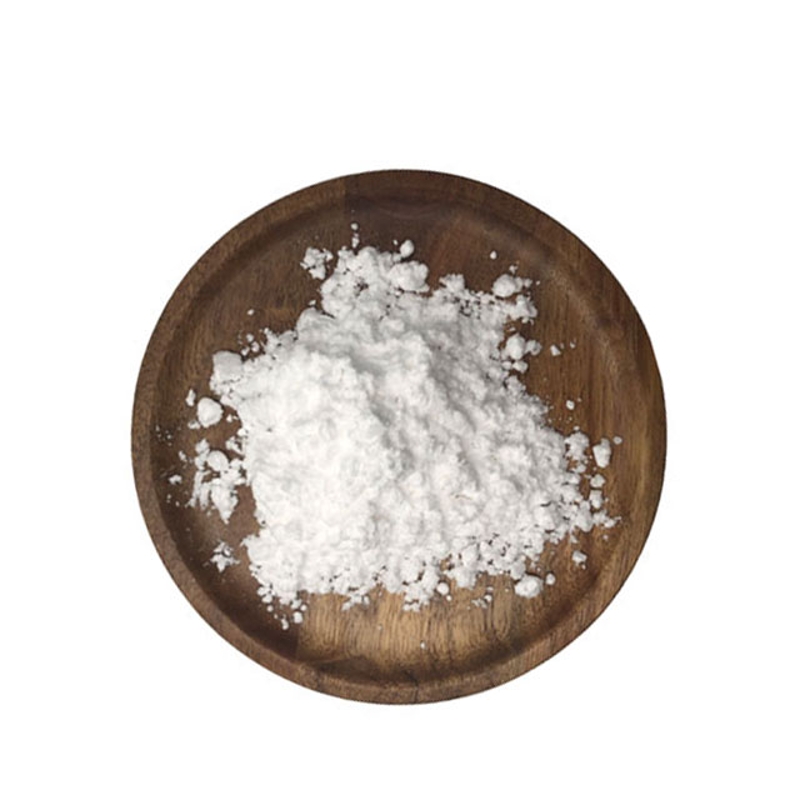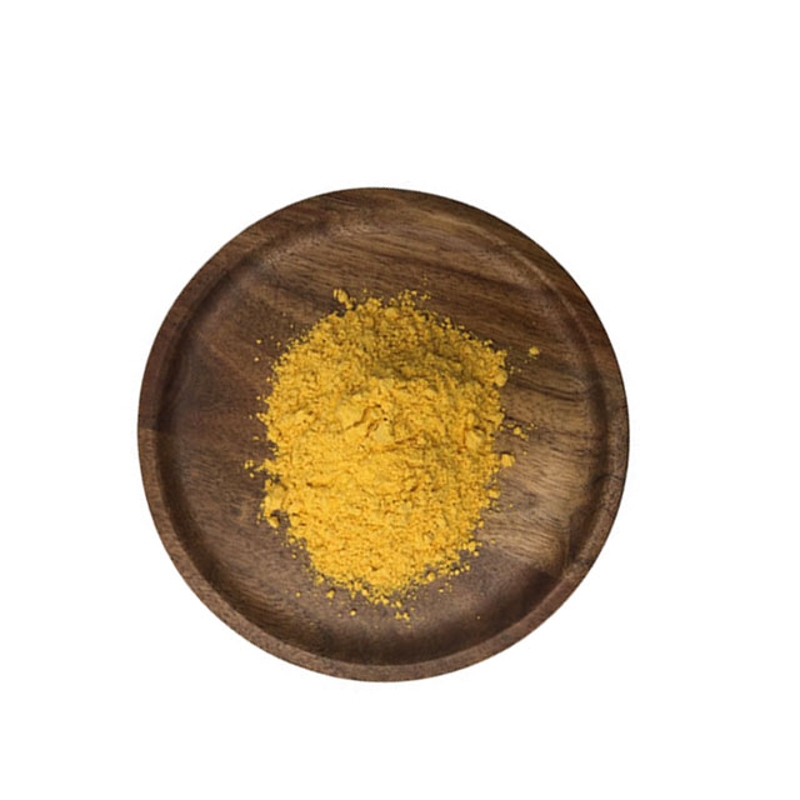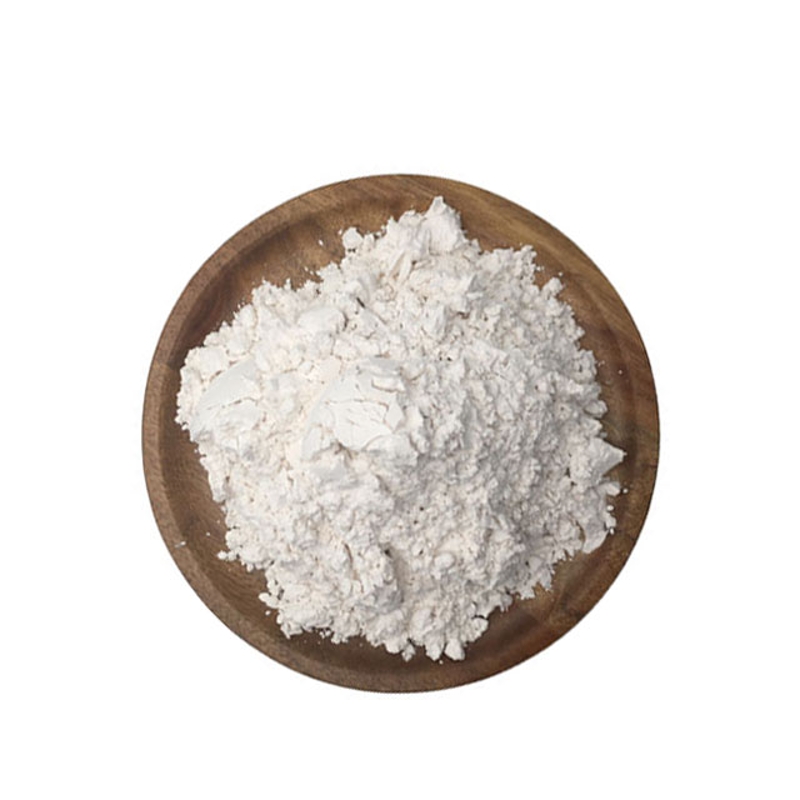-
Categories
-
Pharmaceutical Intermediates
-
Active Pharmaceutical Ingredients
-
Food Additives
- Industrial Coatings
- Agrochemicals
- Dyes and Pigments
- Surfactant
- Flavors and Fragrances
- Chemical Reagents
- Catalyst and Auxiliary
- Natural Products
- Inorganic Chemistry
-
Organic Chemistry
-
Biochemical Engineering
- Analytical Chemistry
- Cosmetic Ingredient
-
Pharmaceutical Intermediates
Promotion
ECHEMI Mall
Wholesale
Weekly Price
Exhibition
News
-
Trade Service
The emergence of PD-L1/PD-1 inhibitors has changed the treatment of advanced non-small cell lung cancer (NSCLC)
.
There is evidence that immune-related adverse events (irAEs) can predict the improvement of the prognosis of patients with cancer (such as NSCLC)
.
A summary analysis of the 2021 ASCO annual meeting explored this
.
Atelizumab (atezo; PD-L1 inhibitor) has shown effectiveness and tolerability in NSCLC, and has been approved for first-line and second-line treatment of NSCLC patients
.
The phase III IMpower130, IMpower132 and IMpower150 trials evaluated the outcome of atilizumab + chemotherapy ± bevacizumab in the first-line treatment of NSCLC
.
The study also explored the relationship between irAEs and efficacy
.
Research methods: Each trial included untreated stage IV non-squamous NSCLC patients and randomly divided into 3 groups: IMpower130 study: carboplatin + albumin paclitaxel or carboplatin + albumin paclitaxel + atilizumab; IMpower132 Study: Carboplatin/Cisplatin or Carboplatin/Cisplatin+Atelizumab; IMpower150 Study: Atelizumab+Carboplatin+Paclitaxel or Atelizumab+Carboplatin+Paclitaxel+Beva Bevacizumab or carboplatin + paclitaxel + bevacizumab
.
Summarize data (data deadline: March 15, 2018 [IMpower130]; May 22, 2018 [IMpower132]; September 13, 2019 [IMpower150]), and analyze the efficacy (including atelizumab group) vs control group) and irAE
.
Time-dependent Cox regression and Landmark analysis were used to correct the non-death time bias at 1, 3, 6, and 12 months
.
The study protocol requires ≥ Grade 3 adverse reactions to interrupt/stop atelizumab treatment
.
Research results: A total of 2503 patients were included in the analysis (atelizumab group, n=1577; control group, n=926)
.
Baseline characteristics of patients with irAEs (atelizumab group, n=753; control group, n=289) and no irAEs (atifizumab group, n=824; control group, n=637) Basically balanced
.
The incidence of irAE of any grade in the atilizumab group and the control group was 48% and 32%, respectively; the incidence of grade 3-5 irAE was 11% and 5%; the most common irAEs of any grade in the two groups were: Skin rash (28% vs 18%), hepatitis (15% vs 10%) and hypothyroidism (12% vs 4%)
.
The median time to onset of the first irAE in the two groups was 1.
7 months vs 1.
4 months, respectively
.
The median overall survival (OS) of patients with irAE in the atilizumab group was 25.
7 months, and those without irAE were 13.
0 months.
The hazard ratio (HR, 95% CI) of the time-dependent Cox model was 0.
69; The median OS of patients in the control group with irAE was 20.
2 months, and the patients without irAE were 12.
8 months, and the HR was 0.
82
.
Landmark analysis showed that in the atelizumab group, patients with grade 1/2 irAEs had the longest OS, and patients with grade 3-5 irAEs had the shortest OS, which may be caused by interruption or cessation of treatment
.
Research conclusion: In this exploratory pooled analysis, based on time-dependent Cox regression and Landmark analysis, in the atelizumab group and the control group, the OS of patients with irAE was longer than the OS of patients without irAE
.
Except for the rash, this trend still exists in the atilizumab group
.
Landmark analysis showed that in the atelizumab group, patients with grade 1/2 irAE had the longest OS, while patients with grade ≥3 irAE had the shortest OS, which may be due to treatment interruption/termination
.
The study showed that there is an association between irAE and efficacy in patients with non-small cell carcinoma
.
References: 1.
Pooled analyses of immune-related adverse events (irAEs) and efficacy from the phase 3 trials IMpower130, IMpower132, and IMpower150.
2021 ASCO.
Abs9002.
.
There is evidence that immune-related adverse events (irAEs) can predict the improvement of the prognosis of patients with cancer (such as NSCLC)
.
A summary analysis of the 2021 ASCO annual meeting explored this
.
Atelizumab (atezo; PD-L1 inhibitor) has shown effectiveness and tolerability in NSCLC, and has been approved for first-line and second-line treatment of NSCLC patients
.
The phase III IMpower130, IMpower132 and IMpower150 trials evaluated the outcome of atilizumab + chemotherapy ± bevacizumab in the first-line treatment of NSCLC
.
The study also explored the relationship between irAEs and efficacy
.
Research methods: Each trial included untreated stage IV non-squamous NSCLC patients and randomly divided into 3 groups: IMpower130 study: carboplatin + albumin paclitaxel or carboplatin + albumin paclitaxel + atilizumab; IMpower132 Study: Carboplatin/Cisplatin or Carboplatin/Cisplatin+Atelizumab; IMpower150 Study: Atelizumab+Carboplatin+Paclitaxel or Atelizumab+Carboplatin+Paclitaxel+Beva Bevacizumab or carboplatin + paclitaxel + bevacizumab
.
Summarize data (data deadline: March 15, 2018 [IMpower130]; May 22, 2018 [IMpower132]; September 13, 2019 [IMpower150]), and analyze the efficacy (including atelizumab group) vs control group) and irAE
.
Time-dependent Cox regression and Landmark analysis were used to correct the non-death time bias at 1, 3, 6, and 12 months
.
The study protocol requires ≥ Grade 3 adverse reactions to interrupt/stop atelizumab treatment
.
Research results: A total of 2503 patients were included in the analysis (atelizumab group, n=1577; control group, n=926)
.
Baseline characteristics of patients with irAEs (atelizumab group, n=753; control group, n=289) and no irAEs (atifizumab group, n=824; control group, n=637) Basically balanced
.
The incidence of irAE of any grade in the atilizumab group and the control group was 48% and 32%, respectively; the incidence of grade 3-5 irAE was 11% and 5%; the most common irAEs of any grade in the two groups were: Skin rash (28% vs 18%), hepatitis (15% vs 10%) and hypothyroidism (12% vs 4%)
.
The median time to onset of the first irAE in the two groups was 1.
7 months vs 1.
4 months, respectively
.
The median overall survival (OS) of patients with irAE in the atilizumab group was 25.
7 months, and those without irAE were 13.
0 months.
The hazard ratio (HR, 95% CI) of the time-dependent Cox model was 0.
69; The median OS of patients in the control group with irAE was 20.
2 months, and the patients without irAE were 12.
8 months, and the HR was 0.
82
.
Landmark analysis showed that in the atelizumab group, patients with grade 1/2 irAEs had the longest OS, and patients with grade 3-5 irAEs had the shortest OS, which may be caused by interruption or cessation of treatment
.
Research conclusion: In this exploratory pooled analysis, based on time-dependent Cox regression and Landmark analysis, in the atelizumab group and the control group, the OS of patients with irAE was longer than the OS of patients without irAE
.
Except for the rash, this trend still exists in the atilizumab group
.
Landmark analysis showed that in the atelizumab group, patients with grade 1/2 irAE had the longest OS, while patients with grade ≥3 irAE had the shortest OS, which may be due to treatment interruption/termination
.
The study showed that there is an association between irAE and efficacy in patients with non-small cell carcinoma
.
References: 1.
Pooled analyses of immune-related adverse events (irAEs) and efficacy from the phase 3 trials IMpower130, IMpower132, and IMpower150.
2021 ASCO.
Abs9002.







